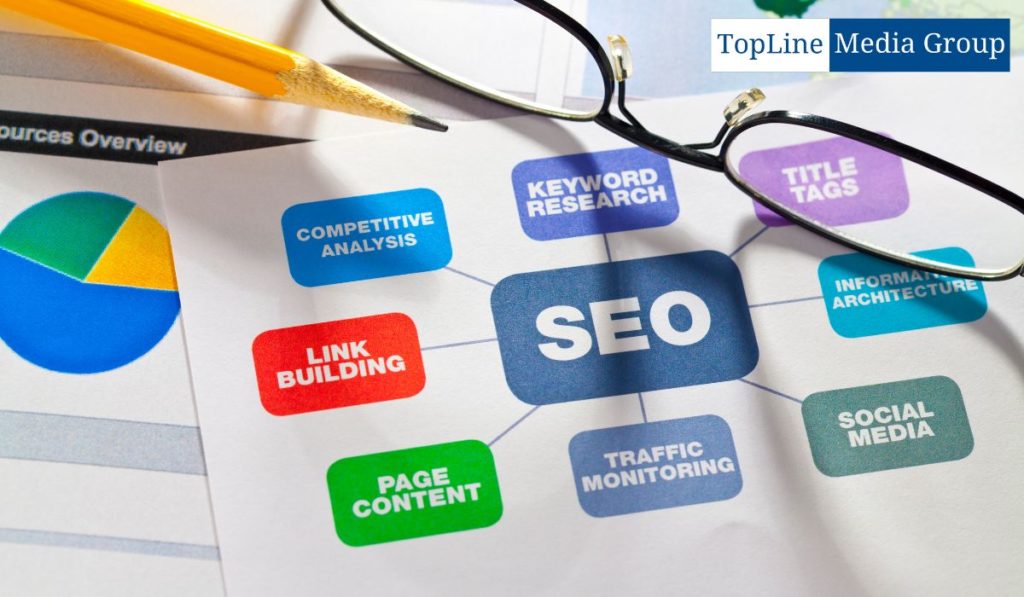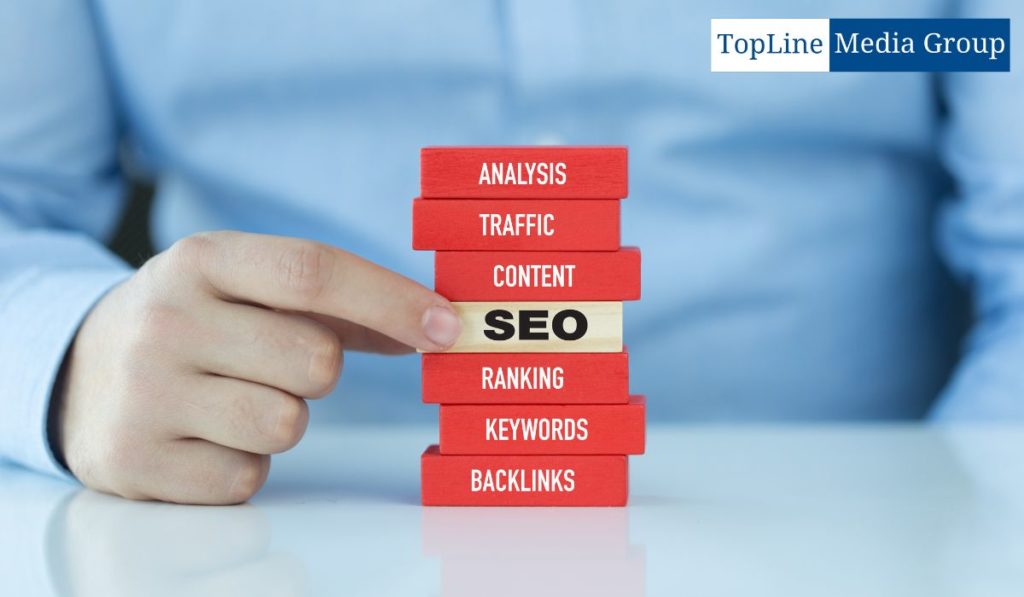In today’s digital landscape, mastering the art of search engine optimization (SEO) is no longer an option but a necessity.
As the online marketplace becomes increasingly competitive, businesses and individuals alike must harness the power of effective SEO techniques to enhance their online presence and attract organic traffic.
This article delves into a comprehensive exploration of advanced SEO strategies, proven methods, successful techniques, top practices, and optimized approaches that can propel your website to the forefront of search engine results.
Understanding SEO and Its Importance
SEO, in its essence, is the practice of optimizing various elements of a website to make it more search engine-friendly and user-friendly.
Its significance lies in the fact that search engines are the primary gateways through which users discover new content on the internet.
By aligning your website with the algorithms and criteria that search engines prioritize, you increase the likelihood of your content being found by the right audience.
Keyword Research: The Foundation of SEO
The journey to effective SEO begins with keyword research.
Identifying the right keywords and phrases that your target audience is likely to search for empowers you to tailor your content to their needs.
Keyword research tools, such as Google Keyword Planner and SEMrush, assist in uncovering relevant keywords with high search volumes and low competition.
Integrating these keywords naturally throughout your content is key to boosting your website’s visibility.
On-Page Optimization: Optimizing Your Webpages
On-page optimization involves refining individual webpages to enhance their search engine rankings and user experience.
This process encompasses various elements, including:
Title Tags and Meta Descriptions
Title tags and meta descriptions are HTML elements that provide concise yet informative overviews of your webpages.
Incorporating relevant keywords into these tags, while maintaining a clear and engaging tone, can significantly improve click-through rates from search results.
Header Tags for Structure
Header tags (H2, H3, H4, etc.) are used to structure your content.
They not only make your content more scannable but also signal to search engines the hierarchy and importance of your content’s sections.
Keyword Placement and Density
Strategic placement of keywords in your content is crucial for SEO.
However, overstuffing your content with keywords can lead to a negative user experience and even penalization by search engines.
Aim for a natural and contextual use of keywords.
High-Quality Content Creation
Creating valuable, informative, and engaging content is at the heart of successful SEO.
Content that resonates with your target audience not only keeps them on your website longer but also encourages social sharing and backlinking.
The Significance of Engaging Content
Engaging content captures your audience’s attention and keeps them invested in your website.
It could be in the form of captivating blog posts, informative infographics, or entertaining videos that provide value to your readers.
Utilizing Multimedia: Images and Videos
Incorporating multimedia elements, such as images and videos, can enhance the visual appeal and interactivity of your content.
These elements not only make your content more engaging but also contribute to longer user engagement.
Importance of Long-Form Content
 Long-form content, typically exceeding 1500 words, tends to perform well in search engine rankings.
Long-form content, typically exceeding 1500 words, tends to perform well in search engine rankings.
It allows for in-depth exploration of a topic, showcases your expertise, and provides comprehensive value to readers.
Mobile-Friendly and Responsive Design
As mobile device usage continues to rise, having a mobile-friendly and responsive website design is paramount.
Google’s algorithms prioritize mobile-friendly websites, and a poor mobile experience can result in higher bounce rates.
Page Loading Speed: A Crucial Factor
A slow-loading website can deter users and negatively impact your search engine rankings.
Optimizing images, utilizing browser caching, and minimizing server response times are some strategies to boost your website’s loading speed.
Backlink Building Strategies
Backlinks, also known as inbound links, are links from other websites that point to your site.
They are a significant factor in search engine algorithms, signaling to search engines that your content is reputable and valuable.
Guest Posting and Blogger Outreach
Guest posting involves creating content for other websites within your niche.
In return, you receive a backlink to your website.
This strategy not only builds backlinks but also establishes your authority within the industry.
Social Media Signals and Shares
Social media platforms are excellent avenues for promoting your content and generating backlinks.
When users share your content across social media, it indicates to search engines that your content is relevant and worth sharing.
Influencer Collaboration for Backlinks
Collaborating with influencers in your industry can lead to valuable backlinks.
Influencers often have a large and engaged audience, making their endorsements and backlinks highly beneficial.
Technical SEO Considerations
Technical SEO involves optimizing the technical aspects of your website to improve its search engine visibility and user experience.
XML Sitemaps for Crawling
XML sitemaps provide search engines with a roadmap of your website’s structure, making it easier for them to crawl and index your pages.
Structured Data Markup
Structured data markup, also known as schema markup, helps search engines understand the context and content of your webpages.
This can lead to enhanced search engine listings, known as rich snippets.
Canonicalization for Duplicate Content
Duplicate content can harm your search engine rankings.
Canonical tags indicate the preferred version of a webpage, helping search engines understand which version to index.
User Experience and Engagement Metrics
User experience plays a vital role in SEO.
Search engines consider various engagement metrics when ranking websites.
Bounce Rate and Dwell Time
A high bounce rate (when users leave your site after viewing only one page) can signal to search engines that your content is not engaging or relevant.
Dwell time, on the other hand, measures the amount of time users spend on your site after clicking a search result.
Enhancing Click-Through Rates (CTR)
A compelling meta description and title tag can improve your click-through rate from search results.
The more clicks you receive, the more relevant your content appears to search engines.
Interactive Elements and Call-to-Actions
Incorporating interactive elements, such as quizzes, polls, and call-to-action buttons, encourages user engagement and prolongs time spent on your website.
Local SEO Tactics
For businesses targeting a local audience, local SEO strategies are essential.
Google My Business Optimization
Claiming and optimizing your Google My Business listing increases your chances of appearing in local search results.
Ensure your business information is accurate and up-to-date.
NAP Consistency (Name, Address, Phone Number)
Consistency in your business’s name, address, and phone number across various online platforms helps build trust with both users and search engines.
Online Reviews and Ratings
Positive online reviews and ratings can boost your local SEO efforts. Encourage satisfied customers to leave reviews on platforms like Google, Yelp, and Facebook.
Regular Content Updates and Maintenance
Consistently updating and maintaining your website’s content signals to search engines that your website is active and relevant.
Outdated content can lead to a drop in search engine rankings.
Monitoring and Analytics Tools
Effectively tracking your SEO performance is crucial for refining your strategies over time.
Google Analytics for Insights
Google Analytics provides valuable insights into your website’s traffic sources, user behavior, and engagement metrics.
Search Console for Performance Tracking
Google Search Console offers data on how your website appears in search results and helps identify and fix any technical issues.
Backlink Analysis Tools
Tools like Moz and Ahrefs allow you to analyze your backlink profile, monitor your backlink growth, and identify potential opportunities.
Algorithm Updates: Staying Current
Search engine algorithms are constantly evolving.
 Staying informed about algorithm updates and adapting your strategies accordingly is essential for maintaining your search engine rankings.
Staying informed about algorithm updates and adapting your strategies accordingly is essential for maintaining your search engine rankings.
White Hat vs. Black Hat SEO
It’s important to distinguish between ethical SEO practices (White Hat) and manipulative tactics (Black Hat) that can lead to penalties.
Conclusion
Mastering effective SEO techniques is a continuous journey that requires a combination of technical expertise, strategic thinking, and creativity.
By understanding the nuances of SEO and implementing a holistic approach that includes on-page optimization, high-quality content creation, backlink building, technical considerations, and user experience enhancement, you can achieve sustainable online success.
Keep in mind that the digital landscape is ever-changing, and staying adaptable to algorithm updates and industry trends is key to maintaining your competitive edge.
FAQs
What is SEO, and why is it important?
SEO, or search engine optimization, is the practice of optimizing your website and its content to improve its visibility on search engines like Google. It’s important because the majority of online experiences begin with a search engine, and higher visibility leads to more organic (unpaid) traffic and potential customers finding your website.
How does keyword research impact SEO?
Keyword research is the foundation of SEO. By identifying and using the right keywords that your target audience is searching for, you can optimize your content to match their intent. This helps search engines understand the relevance of your content and rank it higher in search results.
What are backlinks, and why are they crucial?
Backlinks are links from other websites that point to your site. They are crucial because search engines see them as votes of confidence in your content. Quality backlinks from reputable sources can improve your website’s authority and search engine rankings.
How can I improve my website’s loading speed?
Website loading speed is crucial for user experience and SEO. You can improve it by optimizing images and videos, using browser caching, minimizing code and scripts, and choosing a reliable hosting provider.
What is the role of user experience in SEO?
User experience is a key factor in SEO. Search engines aim to provide users with the best possible results, and websites that offer a positive user experience through easy navigation, fast loading times, and engaging content tend to rank higher.
How do I optimize my website’s title tags and meta descriptions?
Optimizing title tags and meta descriptions involves including relevant keywords, creating compelling and accurate descriptions, and adhering to the recommended character limits. This helps improve click-through rates from search results.
What is long-form content, and why is it significant for SEO?
Long-form content refers to in-depth articles or blog posts that provide comprehensive information on a topic. It’s significant for SEO because it tends to rank higher in search results, attracts more backlinks, and signals to search engines that your content is valuable and authoritative.
How does Google My Business optimization affect local SEO?
Google My Business optimization is essential for local businesses. It helps your business appear in local search results, provides important information to potential customers, and encourages customer reviews and engagement.
What are some recommended analytics tools for monitoring SEO performance?
Google Analytics, Google Search Console, Moz, Ahrefs, and SEMrush are some of the recommended tools for monitoring SEO performance. They provide insights into website traffic, search rankings, backlinks, and more.
What’s the difference between White Hat and Black Hat SEO techniques?
White Hat SEO techniques are ethical practices that follow search engine guidelines to improve a website’s visibility. Black Hat techniques are manipulative tactics that try to trick search engines into ranking a website higher. White Hat techniques are sustainable and recommended, while Black Hat techniques can lead to penalties and a negative impact on rankings.




